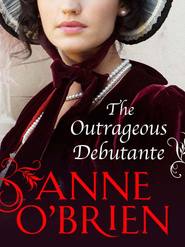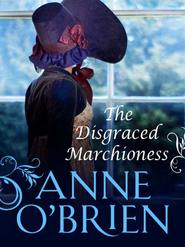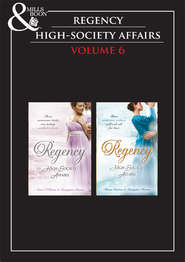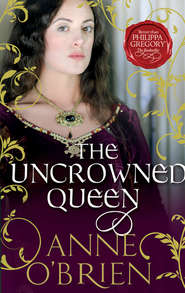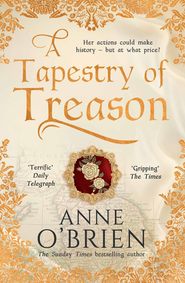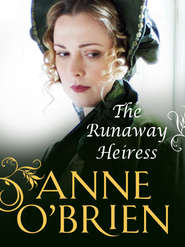По всем вопросам обращайтесь на: info@litportal.ru
(©) 2003-2025.
✖
The Enigmatic Rake
Настройки чтения
Размер шрифта
Высота строк
Поля
‘Mama! Mama! She is here. The little girl is here.’ John jumped and hopped in excitement by the window flanking the front door. No matter how often Sarah had tried to explain their altered status, or the parts of the house that were out of bound to him—and how difficult that was to a child of nearly six years!—John still saw the new arrival as an object of endless fascination and a possible playmate.
Sarah joined him, grabbing hold of his hand. There was indeed bustle and noise on the pavement. Luggage was being unloaded. But no child emerged from the carriage. She clutched her son’s hand harder.
‘It is not Celestine. It is Lord Faringdon!’
Why had the man not sent word to warn them? Well, why should he? Swallowing against a sudden brush of panic along her spine, Sarah made a hasty dash to the servants’ quarters to gather up and send as many staff as possible to the entrance hall, where they might formally greet their new lord. They lined up just as the front door was flung open by a young and self-conscious footman. Sarah, the last to arrive, took a place at the end of the line, twitching her skirts and cuffs into place, thinking that it really would not do for her to meet her first employer in a state of disorder. Then realised that John was still watching the arrival in a frenzy of excitement. She should have banished him to the kitchens—this was no place for her child—but too late. Quick as a thought, she pulled him to stand beside her.
‘Stand still, John.’ Sarah managed to smile down at him, as nervous as the youngest scullery maid. ‘Don’t speak unless you are spoken to. Silent as a little mouse, mind!’
Eyes wide, John nodded and grasped his mother’s skirts.
Up the flight of shallow steps and into the entrance hall walked a lady. Tall with a slender, willowy figure, she was immediately the centre of attention. A glorious brunette with dark eyes under dark brows and dark lashes that could only have benefited from the careful use of cosmetics. And with a richly painted mouth that smiled, unlike her eyes, which did not. Rather they looked and assessed and discarded with elegant disdain as if used to better things. She took up a position—posed, Sarah decided—just inside the door as if to draw all eyes to herself. There was no difficulty here.
She was dressed, as Sarah supposed, in the height of Parisian fashion in a delectable shade of lavender. Row after row of ribbon and lace trimmed the hem, the same detail drawing the eye to the pleated yoke above the high waist. The sleeves were long and close fitting into pleated cuffs with little puffed oversleeves. The brim of the satin-straw bonnet was trimmed with similar pleating, the crown with flowers and curling feathers, its long satin ribbons fluttering as the lady glided across the tiled floor in matching satin shoes.
Sarah could not prevent a silent sigh of envy, immediately conscious of her own plain gown fashioned of dark blue silk, high necked, long sleeved, not a hint of decoration. As for the lace cap that she had reluctantly pinned to her rigidly controlled curls … all perfectly suited to her standing, demure and understated and of excellent quality. She had never felt quite so dowdy in all her life.
Sarah surveyed the visitor beneath lowered lashes, understanding at once who she must be. The Countess of Wexford, no less. Judith’s barbed comments came instantly to life and Sarah could well believe the truth of them. Her ladyship said not a word, not condescending to notice such lowly creatures as servants. Drawing off the softest of kid gloves with casual grace and perhaps a touch of impatience about her lovely mouth and a faint line between her brows, she surveyed the entrance hall, the rise of the staircase to the first floor, the side tables and hall chairs—almost as if she were looking for dust. Definitely impatience, Sarah realised, as the Countess tapped one foot, then swept her luxurious skirts out of the way to move back to the doorway to look out. But she smiled, her petulance swiftly disguised. Lord Faringdon was now here.
For Sarah, Joshua Sherbourne Faringdon was a far more attractive subject for her conjecture. She repressed a nervous smile as he came to a halt in the doorway, the sun at his back, casting his features into shadow but rimming him in gold. What would he say if he knew that she was a close friend of his sister, a less than discreet and loyal sister who had seen it in her way to pass on all manner of interesting information. But Sarah had no intention of allowing him this knowledge and had warned Judith of her desires. To Lord Faringdon, she would simply be Mrs Sarah Russell, his newly appointed—if most inexperienced—housekeeper.
It was immediately obvious as he approached the doorway that Lord Faringdon had suffered a number of recent and far from trivial injuries. He moved with a slow and agonising stiffness, using a cane to help him mount the steps, holding himself as if his ribs and one shoulder flared with pain with every unwise movement. Perhaps there was a tightness, a hint of strain around his mouth. But that, although she recalled in some moral indignation Judith’s confidences on the cause of the damage, was not what took Mrs Russell’s attention. From the moment that his lordship set foot inside his own hall, when he turned so that the light could fall full on his face, for Sarah the glory of the Countess of Wexford became a matter of irrelevance, as tawdry as pinchbeck beside fine gold.
She recognised the Faringdon features, familiar as they were, immediately. Beautifully carved features, all firm planes and interesting hollows cast into relief by the bright sunlight that shone directly into the room. A thin, imperious nose and firm lips. But here there were arresting differences. Dense black hair she had expected, but not with the lustre of dull silver. And his eyes were neither disturbingly dark gray nor intensely blue. As Judith had so casually informed her, they were light, silver even, devastating as polished metal, clear as cut glass. As piercing as the gaze of a hunting hawk as he cast an eye over his assembled staff. And at this precise moment, Sarah decided, they were full of an intense irritation, although with whom or what she could hardly guess.
For Sarah it was an uncomfortable instant of shock and inner revelation. She took a deep breath as her heart gave one heavy beat, then sighed and tensed against a little flutter of butterfly wings in her stomach, a shiver of longing that spread its warm heat from her breast to the tips of her fingers. A delicate flush mantled her cheeks. Capable, sensible, practical—unworthy—Sarah Russell, who asked nothing more in life than forgiveness for the part she had played in her brother’s malicious plotting, and the chance to carve out a quiet life for herself and her son. Who wanted never to be dependent on the whim of any man ever again. Sarah Russell, who had lived in the same house with both Henry and Nicholas Faringdon, admiring both, acknowledging the charm of both, but without any danger of losing her common sense where they were concerned—or her heart.
And here, in this one blinding moment, her love for John Russell, although it could never be denied, paled into insignificance as the intoxication of longing swam through Sarah’s blood.
Why did it have to happen now? And with this man?
She took herself instantly to task, in typical stern fashion, despite the hectic beat of her pulse at throat and wrist. How foolish she was to allow so immediate a reaction to simply the sight of the man. Of what value was a handsome face if the owner lacked honour and respectability? Of course it was impossible to fall in love so instantly, so completely with someone of whom she had no knowledge, apart from the most damaging of gossip, and who was so far above her as to make the situation patently ridiculous. With a man who had arrived in the intimate company of the Countess of Wexford, who was certainly expecting to take up residence in the house, with no attempt to disguise her relationship with Lord Faringdon. How scandalous indeed! Of course Sarah could not have lost her heart!
But Sarah’s silent lecture did not at all seem to have the desired effect.
‘Joshua.’ The voice of Lady Wexford, although rich and sultry, could slice through flesh and bone. ‘At last.’ She allowed no recognition of his injuries, placing her hand on his arm in a possessive little gesture that merely confirmed all Sarah’s presumptions concerning their relationship. ‘If you would dismiss your staff, I can discover if there is a suitable room for myself and my maid. That is, if such has been made ready for me.’
‘One moment, Olivia.’ A flicker of some emotion in those remarkable eyes—far keener than mere irritation—was quickly banished. Sarah, watching carefully, was not even in the end sure of its existence. But Lord Faringdon turned from the lady and her demands with slow deliberation to make his halting way along the line, speaking one by one to the servants appointed to run his home. Sarah found herself listening to his voice. Soft, low. A masculine edge to trip along her senses. And his words—he found the exact greeting and comment for Mrs Beddows and Millington. Even the maids and footmen. When he smiled his eyes warmed, his face lit with a charm guaranteed to win their loyalty to the last drop of blood. Sarah looked away. It would be difficult for any woman to stand against it.
At last he came to Sarah, at the end of the line, by chance rather than status.
He saw a slight young woman, not overly tall but well proportioned, fine boned with an air of graceful competence. Far younger than he had expected, certainly immature for the position of authority denoted by her formal and severe clothing, the little high-standing ruff of her gown drawing attention to her face. Her fair hair was swept back into a neat twist, but allowing no curls around her face to soften her features. She wore a little lace cap. He gained an impression of a classically oval face, of pale skin, quiet blue eyes, an unexpected fragility. But also a calm composure, again at odds with her youth, as her gaze met his with no shyness on her part. Although … There might have been some momentary flicker of response there that he could not read. But then it was gone—perhaps he was mistaken. But he was not mistaken in noting the soft glow of colour that invaded her cheeks during his lengthy scrutiny.
‘So you must be my housekeeper?’ he asked at last. A mere process of elimination. He looked at her, cool and assessing. He supposed that Lady Beatrice had known what she was about in appointing so youthful a person.
‘Yes, my lord. I am Mrs Russell.’ Sarah performed a neat curtsy, no expression other than the polite response of a servant.
‘You are younger than I might have expected.’
‘I am not inexperienced, my lord. The Countess of Painscastle recommended me personally for the position.’ She would make use of her connections if she had to and prayed that he would not see a need to question his sister too closely.
‘So this is all Judith’s doing. I should have realised.’ Absorbing Lady Beatrice’s rejection of his initial request for help, his lordship’s eyes grew flat and dark. But what other had he expected? He turned his attention back to the fair young woman who was addressing him again in a pleasingly educated voice.
‘I am also engaged to undertake the education of your daughter when she is in London, my lord.’
‘Ah. Has she arrived?’
‘No. We expect her any day. All is in readiness, my lord.’ A confident voice, he realised, soft and well modulated. Somehow, it matched her appearance exactly. On first impression he approved his sister’s choice.
He would have turned away when his attention was caught by the slightest movement at Sarah’s side. He looked down.
‘And who are you?’
The small boy moved a foot to the left, out of the shelter of Sarah’s skirts, yet still keeping a fold tight in his fist. But he smiled and answered readily, ‘I am John.’
‘What are you doing here, John?’
‘I live here. My lord,’ he added at a slight nudge from Mrs Russell.
‘Well, now. And why is it that you live in my house?’
‘I …’ A question beyond him. John glanced up at his mother with sharp anxiety.
‘He is my son, my lord.’
And he could immediately see the resemblance in the fair hair and light complexion.
‘Is it fitting to have a married person as your housekeeper, Joshua?’ The Countess, resenting the intrusion of servants into Lord Faringdon’s attention to herself, had come to stand beside him, now looking Sarah over from head to foot with frigid disapproval. ‘And with a child? Surely that is not appropriate in a gentleman’s household. Besides, children are so noisy.’ Her glance at the small boy was one of sharp distaste, barely masked.
Sarah stiffened, recognising an enemy in the supremely self-absorbed, supremely beautiful Countess, but addressed her reply with perfect equanimity to her employer. ‘I am a widow, sir, and have been so for five years. Forgive me, my son should not have been here.’ She would not apologise or explain further. ‘He will not be a nuisance—to yourself or to her ladyship, I do assure you.’
The Countess promptly turned her back, walking leisurely towards the staircase, choosing to signal her displeasure by ignoring the situation as one of no interest to her. ‘Has a room been made ready for me?’
‘Yes, my lady.’
‘Good. Then be so good as to direct my maid Hortense with my luggage. I need to rest. Is this the withdrawing room? Perhaps you will send tea.’
Lady Wexford made her languorous way to the withdrawing room, leaving his lordship to remain for a long moment, looking after her with a distinct frown between his brows and making no effort to hide it. Then, with the slightest of shrugs, which caused him to wince, he handed over coat, hat and gloves to one of the waiting footmen and limped heavily after her.
To leave behind him in the entrance hall a flurry of comment and interest. Lord Faringdon and his mistress now in residence! A situation promising much food for gossip below stairs. But for Sarah there was considerable personal conflict. She disliked the Countess of Wexford on sight and knew instinctively that the feeling was reciprocal. Perhaps the lady disliked any woman, even the housekeeper, who took the lord’s attention from her for even a moment. Whereas Lord Faringdon … Sarah pressed her palms to her heated cheeks. She could not believe the immediacy of her response to him. How her heart had leapt, her blood warmed, her pulse beat with furious intensity. But it could not be. It was merely an attack of nerves, brought on by her first meeting with her employer. Love without prior knowledge, without a desire to seek it, so blinding and uncomfortable, was merely a foolish romantic dream that had no place in reality, certainly not for a careful woman as she knew herself to be. Nevertheless, Sarah was forced to accept that entirely the best policy was to banish his lordship from her mind and keep her distance. After all, there was nothing surer than that she would never hold any place in his thoughts.
Celestine Faringdon followed close on the heels of her father and the Countess of Wexford on the following day, escorted from Richmond by her nurse, Edith Watton, a lady of extreme age who had been nurse to both Joshua and Judith, and who would remain with her young charge in London. Hardly had the two new arrivals set foot inside the house than Sarah was called to the library to be introduced to the girl.
Lord Faringdon was standing by the fireplace, his daughter at his side, and turned to Sarah as she entered.
‘Mrs Russell. This is my daughter Celestine.’ She could read little from his cool manner, but was aware of some undercurrent in the room. If she had not known better, she would have suspected a plea for help in that commanding stare.
The girl made an instant impression on Sarah of being far older than her eight years, a reserved child who perhaps would not readily give affection or confidences. Celestine was, her new governess decided, a child who had grown up much in the company of adults, who had not been encouraged to laugh or play or forget her dignity as Miss Faringdon. How serious she was! With a surprisingly plain and solemn face, her skin was sallow and her eyes so dark as to be almost black. And unblinkingly direct. Her hair, equally dark, was ruthlessly drawn back into a severe braid. She was tall for her age and a little thin, and pale despite country life where she could have run out of doors. And most notably, in Sarah’s quick assessment, was the fact that she did not smile or show any animation, either in her polite greeting to Sarah or her responses to her father.






